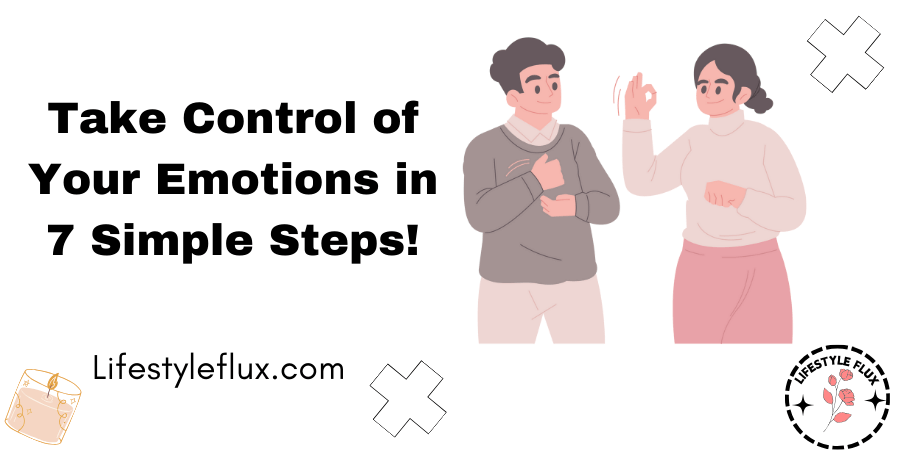Emotions shape every aspect of our lives, influencing our decisions, relationships, and overall well-being. Yet, mastering them often feels like navigating an intricate maze without a map.
Understanding your emotions is crucial whether you’re struggling with stress, grappling with frustration, or simply aiming to build a stronger sense of self-awareness.
This article unveils seven practical steps to help you take control of your emotional world. From challenging patterns to expanding your vocabulary, each step will empower you to navigate your feelings better and lead a more balanced and fulfilling life.
Table of Contents
1. UMBRELLA EMOTIONS
People who struggle to control their emotions are often guilty of the same bad habit. You experience dozens, if not hundreds, of unique emotions daily.
Each combines personality context and experience to create a mental state that is unique to you as an individual. Despite our incredible emotional diversity, many people group their feelings into a few simplistic categories.
These umbrella emotions cancel out the essential quirks of each feeling. For example, you might say I feel bad to describe just about any negative emotion.
But think about all the different emotions that are summed up by the word bad. In this one umbrella category, you’ve got everything from disappointment to sadness and apathy.
Yep, they’re all negative, but that’s the only thing they have in common. They’re triggered by different events, and they’re prevented or resolved in their own unique ways.
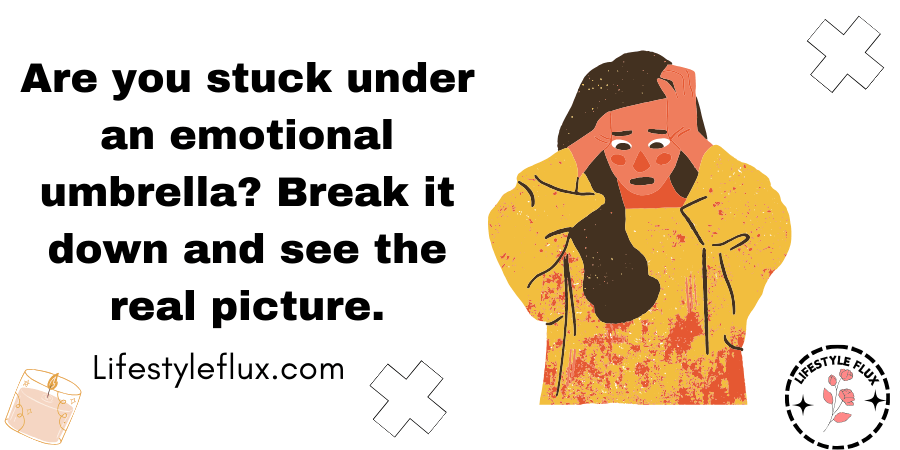
Each individual word can even be broken down further into dozens of more specific feelings. Sadness could mean you’re lonely, but you could just as easily be sad about a missed opportunity or losing a loved one. When you use umbrella emotions, you’re neglecting the real problem. It’s nearly impossible to figure out what’s wrong because you don’t know how you feel about it.
Well, let’s say you feel bad when you don’t get a promotion at work. You assume you’re upset because you weren’t chosen for the position. But weeks go by, and those negative emotions won’t leave you alone, so you dedicate tons of time and effort to ensure you’re picked for the next promotion.
When that day comes, you end up getting the job, only to realize you’re feeling just as sad as you were before. If you had put away your umbrella, you would have noticed that you weren’t adding about the missed promotion.
You were feeling unfulfilled in your career. So, instead of dedicating all that time to your current job, you should have been looking for something that would have made you happy.
This sounds simple, but most people can’t wrap their heads around their emotions. It’s much easier for them to group their feelings into four or five different categories, but their brains are much more complex than that.
If you want to master your emotions, then take the time to identify these three things. What are you feeling?
Where does it come from, and why are you feeling it? This simple step will award you more emotional intelligence than the vast majority of people in the world today.
2. POSITIVE RUMINATION
A single negative event can overshadow a week’s worth of positivity. After something bad happens, you might feel this lingering sense of negativity.
Whether it’s guilt or embarrassment, that negativity infects almost everything that you do afterward, even the things that you love.
It won’t feel nearly as fun.
Because you can’t get that negative experience out of your head, how do we pay less attention to the bad and more attention to the good? Well, a 2003 study challenged two groups of participants to keep daily records of their behaviors and experiences.
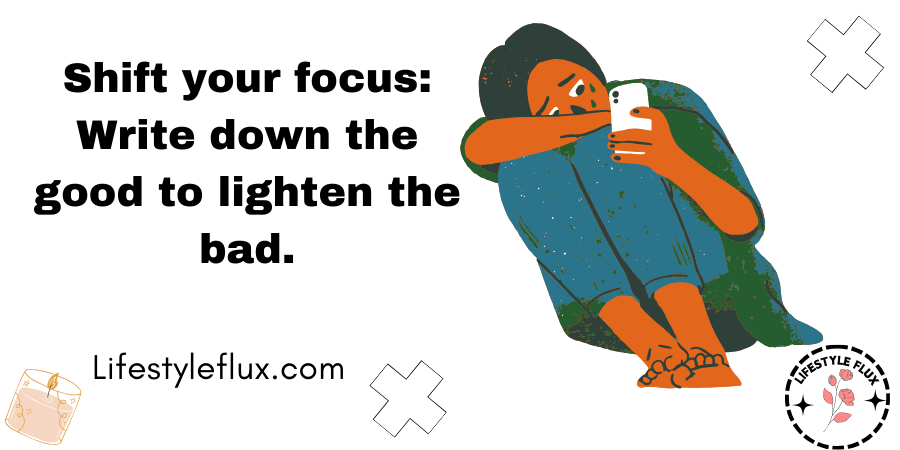
One group paid special attention to the positives, while another focused on the negatives. After weeks of keeping detailed records, researchers measured the well-being of each participant.
They discovered that writing down positive experiences has the most significant impact on your mood. Because participants were more conscious of the good. They spend less time worrying about the bad.
So, if you’re falling down an emotional hole, then start keeping records of the positive things in your life. If you’re consistent, you can stabilize your mental state quickly.
3. CHALLENGING PATTERNS
If you’re learning to draw, which is a better way to start? Should you only draw one thing or practice drawing hundreds of things? Hmm. Repetition does have its place, but expanding your arsenal will give you more experience and flexibility.
When it comes to your emotions, many people lack the perspective to overcome challenges. They stick to the same patterns, places, and routines for their entire lives. While this offers safety and organization, it narrows your view of yourself.
It really deprives you of the experience you need to gain that perspective. You’ll struggle to honestly reflect on who you are because you’ve never faced anything that you’re not comfortable with.
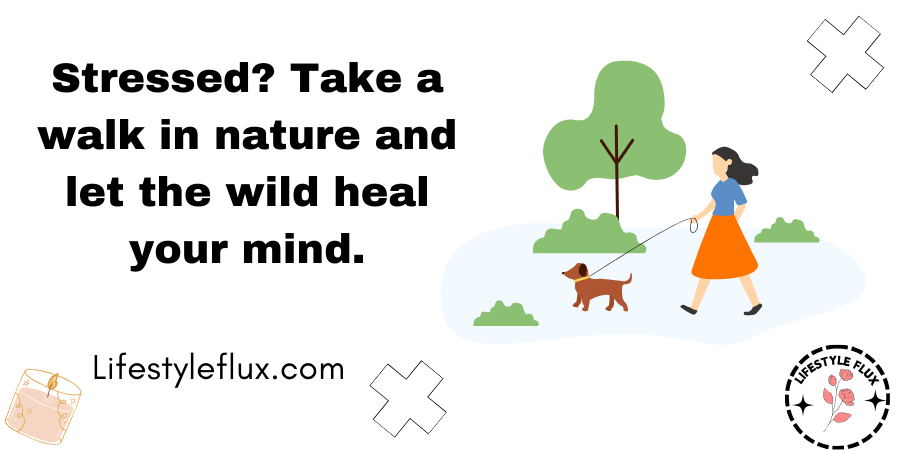
To build your emotional intelligence, you need to force yourself out of your comfort zone. Travel somewhere new, commit yourself to a job or hobby that scares you, and interact with a community that’s different from the one you know.
These new experiences will improve your emotional health by giving you a better understanding of who you are.
4. NATURAL IMMERSION
Sometimes, a casual stroll outside is all you need to control your emotions. A 2016 study found that walking is one of the most effective ways to stabilize your mood, just like how exercise lifts your spirits. Physical movement decreases stress by neutralizing sporadic neural activity.
In other words, when your brain is drowning in negativity, a short walk can pull you to safety. That same study found that walking is especially useful for diminishing boredom and fear if you’re not careful.
These two negative emotions can consume your life. The more you pay attention to them, the worse they get. Boredom turns into hopelessness and low self-esteem.
Fear quickly transforms into frustration and anxiety. Before you know it, your goals, habits, and relationships start to suffer. When you’re stuck in this negative headspace, it feels like you need something significant to claw your way to freedom, but the truth is little activities like walking can completely shift your mentality.
This technique becomes even more therapeutic when done in the right context, so instead of walking through your house or around your neighborhood, try to immerse yourself in nature.
Walk through a Greenbelt or hike, and replace work and technology with trees, water, and natural beauty. Placing yourself in this new context will improve your mood and unravel mental stress.
Your brain often decides its base mental state by taking cues from the surrounding environment. Think about how productive you are at your work desk versus your home bed.
If you’re like most people, sitting in your bed makes you lazy and lethargic, but it’s not because you’re any more tired than usual; your brain simply associates your bed with relaxing activities.
On the other hand, your desk at work puts your brain in a more productive environment that unconsciously changes your behavior. Context moderates your emotions in the same way a change in scenery might be all that you need to get your feelings under control.
Natural settings work wonders on suffocating emotions like anger and doubt, so if you lose your temper, nature gives you a place to relax and let off steam.
When you have to make an important decision, a walk through the wild helps you see more clearly your emotions and will give way to rational thought and creative problem-solving.
By the end of your walk, that initial problem may not bother you anymore, so don’t waste any more time feeling stressed and helpless. A little activity and a change in context will help you regain control of your emotions.
5. EXPANDING VOCABULARY
How does your vocabulary affect your emotions? Well, believe it or not, learning new words helps you identify specific feelings. It’s much easier to conceptualize each emotion when you know the right word to pair it with.
Expanding your emotional vocabulary helps distinguish between similar feelings. Just take these two emotions: annoyance and frustration. On the surface, while they sound the same, they’re not.
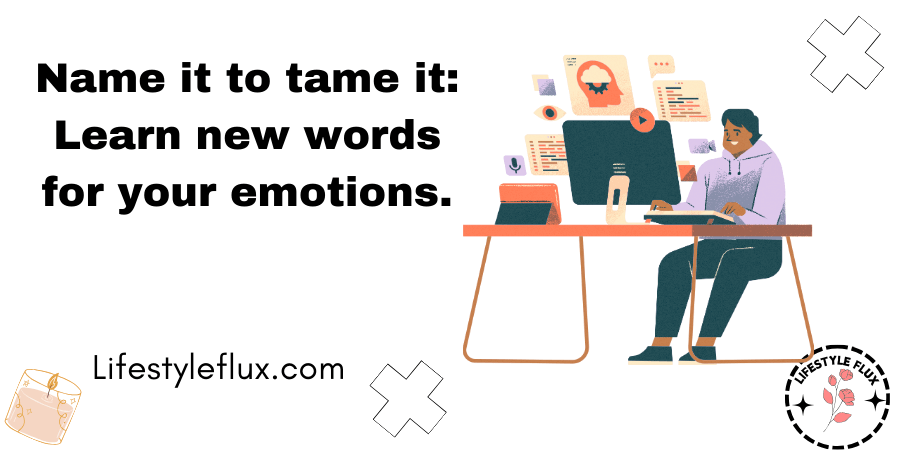
Annoyance requires an object. You’re annoyed by someone’s loud music; you’re annoyed with your younger sibling. Frustration, on the other hand, comes from your inability to achieve a goal.
For example, you might be frustrated that you can’t finish your presentation. Learning as little as one new word a day can transform how you analyze your feelings.
6. EMOTIONAL RESILIENCE
To master your emotions, you have to recover from mental setbacks. Psychologists call this emotional resilience. People who haven’t developed resilience struggle to bounce back after any kind of failure. When something goes wrong, they’re overwhelmed by negative emotions; it gets to the point where they start losing control. If you’re not careful, this can lead to aggression, risky behavior, and substance abuse.
It also cripples motivation and productivity, bringing your goals to a standstill. So, how do you develop emotional resilience? Practicing mindfulness, like writing down positive experiences, is one strategy; another is to start doing cognitive reappraisal training.
This means learning to reinterpret the stressful stimuli in your life. It’ll teach you how to react, cope, and learn in a healthy and productive way. Emotional resilience is a skill that you’ll need for the rest of your life, so don’t wait to start reinterpreting your mistakes.
7. PEOPLE WATCHING
To the untrained eye people, watching is just something that you do when you’re bored, but it actually improves your social intuition. Social intuition is how you understand other people’s emotions.
For example, when you notice your friend’s eyebrows are angled downward, your social intuition tells you that your friend is angry. People-watching teaches you to read complex emotions through body language.
You learn what signals to look for, and you hone in on the most informative parts of the body, like the mouth and the hands. You can even try to predict what they’ll do next; the more you practice, the better you’ll get.
So, how does this help you actually master your own emotions? When you identify them in other people, you learn to recognize those emotions in yourself.
You also get a boost in the emotional expression you learn to communicate through your words, face, and other forms of body language, which are as simple as it sounds.
People-watching will enhance your emotional intelligence inside and out.
Conclusion:
Mastering your emotions isn’t about suppressing how you feel—it’s about understanding and channeling your emotions in ways that benefit you.
By identifying umbrella emotions, practicing mindfulness, immersing yourself in nature, and refining your emotional vocabulary, you’re building the foundation for a healthier, more resilient mind.
Remember, emotional intelligence is a skill that grows with practice. The more you invest in these strategies, the more control you’ll gain over your inner world, unlocking a happier and more confident you.
So, take the first step today—your emotions are yours to master!
Sources:
https://www.psychologytoday.com/us/blog/between-cultures/201705/how-to-master-your-emotions
https://pubmed.ncbi.nlm.nih.gov/27100368
https://www.takingcharge.csh.umn.edu/how-does-nature-impact-our-wellbeing
https://assets.csom.umn.edu/assets/71516.pdf
why people remember negative events more than positive ones
https://emotiontypology.com/typology/list/annoyance
these two-smart techniques to help you master your emotions
https://psycnet.apa.org/record/2003-01140-012

Founder and CEO of Lifestyleflux.com, I bring years of expertise in self-improvement, wellness, and personal development to help you lead a happier, more balanced life. Through practical insights, eBooks, and consultations, I share actionable strategies rooted in experience and a passion for empowering others to unlock their full potential.

